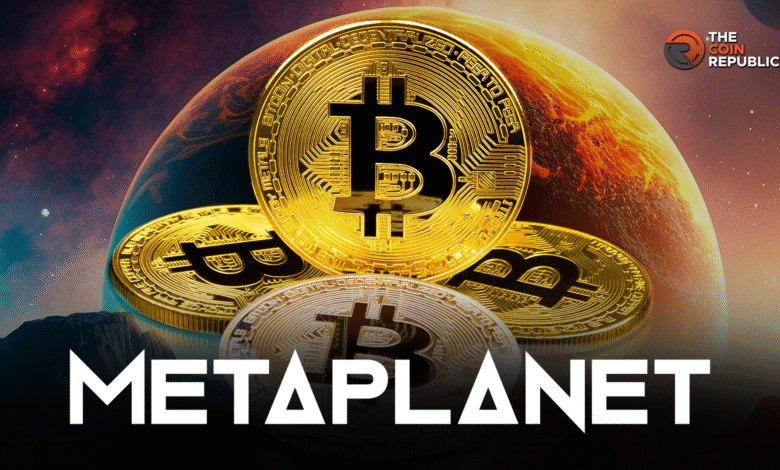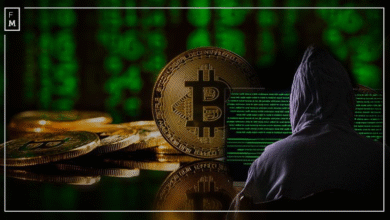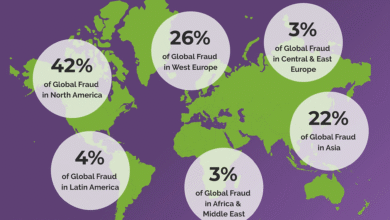Metaplanet Bitcoin Holdings Expand to 7,800 with New BTC

Metaplanet Bitcoin Holdings has taken significant strides in the cryptocurrency landscape, bolstering its portfolio with the recent acquisition of 1,004 bitcoins. This strategic move has elevated the company’s total holdings to an impressive 7,800 BTC, marking a decisive moment in Metaplanet Inc.’s aggressive investment strategy. Based in Japan, Metaplanet Inc. specializes in bitcoin acquisitions and has demonstrated a remarkable BTC yield of 41.7% from July to September 2024. As Japanese companies investing in bitcoin continue to gain momentum, Metaplanet’s dedication to expanding its bitcoin treasury underscores its commitment to maximizing shareholder value. With investments amounting to around 15.195 billion yen in this latest transaction, Metaplanet Bitcoin Holdings reinforces its position as a leader in the evolving digital currency market.
The recent developments at Metaplanet Bitcoin Holdings highlight a growing trend among institutional investors venturing into cryptocurrency assets. As more publicly traded firms seek to diversify their portfolios through bitcoin treasury investments, the spotlight shines on Metaplanet Inc.’s strategic enhancements to its digital currency holdings. With a total of 7,800 bitcoins and an impressive average BTC yield, the company sets an example for other Japanese firms considering the benefits of cryptocurrency. Through calculated bitcoin acquisitions and a focus on yielding returns, Metaplanet showcases the emerging significance of cryptocurrencies in modern finance. This surge in interest from Japanese companies investing in the digital currency space could signal a broader shift in how traditional industries perceive and engage with blockchain technology.
Metaplanet Bitcoin Holdings: A Strategic Move in the Cryptocurrency Market
Metaplanet Inc., a leading player in the Bitcoin market, recently expanded its digital asset portfolio by acquiring 1,004 additional bitcoins. This strategic acquisition brings their total Bitcoin holdings to an impressive 7,800 BTC, cementing their position as a significant force in the cryptocurrency landscape. With the recent market volatility, this move is seen as a calculated effort to bolster their Bitcoin treasury, ensuring that they remain at the forefront of innovation and investment in digital assets.
The average purchase price of 15,134,304 yen per bitcoin signifies Metaplanet’s confidence in the long-term value of Bitcoin amidst fluctuating market conditions. This investment of approximately 15.195 billion yen not only adds to their existing asset base but demonstrates their commitment to maximizing returns for shareholders. The company’s enhanced Bitcoin treasury operations reflect a forward-thinking approach in navigating the challenges of the cryptocurrency market.
The Rise of Japanese Companies Investing in Bitcoin
Japan has emerged as a prominent player in the global Bitcoin market, with numerous companies like Metaplanet Inc. leading the charge. The influx of Japanese companies investing in Bitcoin signifies a broader acceptance and recognition of cryptocurrency as a legitimate asset class. This trend is underscored by increased regulatory clarity and a growing interest in blockchain technology among Japanese corporations.
As the adoption of Bitcoin continues to grow, more businesses in Japan are following in Metaplanet’s footsteps by incorporating Bitcoin treasury strategies into their financial operations. This not only enhances their overall asset diversification but also positions them to benefit from the potential BTC yield, which has shown promising returns in recent quarters. The landscape is set for further growth as these companies look to leverage Bitcoin’s advantages in the global economy.
Bitcoin Acquisitions: An Overview of Metaplanet’s Strategy
Metaplanet’s recent acquisition of 1,004 bitcoins exemplifies its robust strategy focused on bitcoin acquisitions. By strategically increasing its holdings, Metaplanet aims to create a sustainable bitcoin treasury that can yield significant returns. This proactive financial strategy allows the company to capitalize on the ever-evolving cryptocurrency markets while minimizing risks associated with volatility.
Metaplanet’s approach is not merely about accumulating bitcoins; it’s about enhancing their overall economic resilience. With a reported BTC yield of 41.7% in the recent quarter, the strategic investments in Bitcoin are proving fruitful. The company’s commitment to strengthening its bitcoin holdings reflects a larger trend among progressive companies looking to harness the power of Bitcoin in their treasury operations.
Understanding Bitcoin Treasury Operations in Corporate Strategies
Bitcoin treasury operations are becoming increasingly integral to the financial strategies of modern corporations. For companies like Metaplanet Inc., these operations play a crucial role in enhancing shareholder value. Metaplanet’s approach to bitcoin treasury not only involves the acquisition of bitcoins but also managing and optimizing these assets to yield consistent returns.
The success of Metaplanet’s treasury operations can be seen in their impressive BTC yield records, which have garnered significant attention in the market. By efficiently managing their Bitcoin assets, they illustrate how corporations can utilize cryptocurrency to strengthen their financial footing amid traditional market fluctuations. This model is likely to influence other companies looking to adopt similar strategies in the near future.
Analyzing BTC Yield Trends and Their Implications
The recent BTC yield reported by Metaplanet, reaching as high as 309.8% in the following quarter, highlights the potential profitability of investing in Bitcoin. Yield trends in the cryptocurrency market can provide insights into the broader economic environment, helping investors make informed decisions. For Metaplanet, a consistent and high BTC yield emphasizes the effectiveness of their investment strategy, showcasing the unique advantages of cryptocurrency in diversifying corporate portfolios.
Monitoring yield trends is essential for understanding market dynamics and forecasting future movements in Bitcoin’s value. As more companies navigate the complexities of cryptocurrency investments, analyzing yield trends like those seen at Metaplanet can serve as a benchmark for success. Such insights can guide both current investors and potential entrants in the cryptocurrency space.
The Future of Metaplanet’s Bitcoin Strategy and Market Outlook
Looking ahead, Metaplanet’s strategy in accumulating Bitcoin and enhancing its financial operations is set to play a pivotal role in defining its market outlook. With the global cryptocurrency market increasingly becoming competitive, the company’s commitment to acquiring Bitcoin at strategic moments will likely position it favorable for future growth. Metaplanet’s ability to manage risks while maximizing returns could serve as a model for other firms pursuing similar paths.
As Metaplanet continues to navigate the waters of cryptocurrency investment, the efficacy of Bitcoin as a treasury asset will remain a focal point. Given the demonstrated potential for growth, it’s reasonable to expect Metaplanet to maintain its aggressive stance in the Bitcoin market, thereby influencing the broader trends in Japanese corporate investments in cryptocurrencies.
Market Trends Impacting Bitcoin Investments
The landscape of Bitcoin investments is shaped by various market trends that affect both retail and institutional investors. As highlighted by Metaplanet’s recent decisions, trends such as regulatory changes, technological advancements in blockchain, and increasing corporate adoption of Bitcoin are reshaping the investment landscape. Companies that stay ahead of these trends, like Metaplanet, are better positioned to leverage opportunities that may arise.
Furthermore, fluctuating market conditions emphasize the importance of adaptive strategies in Bitcoin investments. Metaplanet Inc.’s ability to respond to market changes while expanding its holdings suggests a strategic foresight that other companies looking to invest in Bitcoin must emulate. The intricacies of managing Bitcoin investments showcase that being attuned to market trends is vital for long-term success.
Bitcoin and Japanese Economic Growth: An Interconnected Future
The integration of Bitcoin into Japanese company strategies signals a potential transformation of the country’s economic framework. As companies like Metaplanet lead the way in Bitcoin investments, they contribute to a growing trend that could significantly influence Japan’s economic growth. The interplay between cryptocurrency adoption and traditional business models may redefine how investments are viewed in the Japanese market.
As this trend continues to gain momentum, the relationship between Bitcoin investments and Japan’s economic landscape will become increasingly relevant. The investment patterns set by Metaplanet and similar entities could inspire a wave of innovation that encourages the broader acceptance of cryptocurrency within traditional sectors, paving the way for a more digitally-focused economic future.
Metaplanet’s Influence on Bitcoin Perception in Corporate Environments
Metaplanet’s proactive approach to Bitcoin treasury management is reshaping how corporations perceive cryptocurrency in the context of asset management. By publicly acknowledging their substantial Bitcoin holdings, Metaplanet contributes to reducing skepticism surrounding cryptocurrencies in more conservative business sectors. This shift in perception is crucial for mainstream adoption as more companies observe the potential benefits illustrated by Metaplanet.
The implications of Metaplanet’s strategy reach beyond their corporate boundaries and can inspire an entire generation of Japanese companies to explore Bitcoin and other cryptocurrencies. By showcasing successful integration of Bitcoin into their financial strategies, Metaplanet is paving the way for a future where cryptocurrencies are viewed as essential components in corporate finance and asset management.
Frequently Asked Questions
What recent acquisition did Metaplanet Inc. make concerning Bitcoin holdings?
Metaplanet Inc. recently acquired an additional 1,004 bitcoins, increasing its total Bitcoin holdings to 7,800 BTC. This acquisition was made at an average price of 15,134,304 yen per bitcoin.
How does Metaplanet Inc. manage its Bitcoin treasury?
Metaplanet Inc. manages its Bitcoin treasury operations by strategically acquiring and holding bitcoins to increase shareholder value while minimizing dilution effects. Recently, the company reported a BTC yield of 41.7% for Q3 2024, and 309.8% for Q4 2024.
What are the latest figures regarding Metaplanet Inc.’s Bitcoin yield?
For the period from July 1 to September 30, 2024, Metaplanet Inc. reported a BTC yield of 41.7%. Following that, for the subsequent quarter, the yield significantly increased to 309.8%.
How much did Metaplanet Inc. invest in its latest Bitcoin acquisition?
Metaplanet Inc. invested approximately 15.195 billion yen in its latest acquisition of 1,004 bitcoins, reflecting its commitment to expanding its Bitcoin treasury.
Why are Japanese companies, like Metaplanet Inc., investing in Bitcoin?
Japanese companies such as Metaplanet Inc. are investing in Bitcoin to diversify their asset portfolios, enhance liquidity, and leverage the potential for significant returns, particularly through BTC treasury operations.
What is the significance of Metaplanet Inc.’s Bitcoin holdings in the market?
Metaplanet Inc.’s substantial Bitcoin holdings, now at 7,800 BTC, position it as a key player in the Bitcoin market, showcasing the growing trend of Japanese companies investing in Bitcoin to capitalize on its value accumulation.
What does the public listing of Metaplanet Inc. imply for its Bitcoin strategies?
As a publicly listed company on the Tokyo Stock Exchange and OTCQX, Metaplanet Inc.’s Bitcoin strategies focus on transparency and value creation for shareholders, enhancing trust and potentially attracting more investors to its Bitcoin treasury initiatives.
How does Metaplanet Inc. plan to enhance shareholder value through its Bitcoin acquisitions?
Metaplanet Inc. aims to enhance shareholder value by gradually increasing its Bitcoin holdings while implementing efficient treasury operations, which have shown significant yield percentages, thereby ensuring long-term profitability and market stability.
| Key Points | Details |
|---|---|
| Company Overview | Metaplanet Inc. is a publicly listed bitcoin treasury company based in Japan. |
| Recent Acquisition | Acquired an additional 1,004 bitcoins, increasing total holdings to 7,800 BTC. |
| Average Purchase Price | The bitcoins were purchased at an average price of 15,134,304 yen each. |
| Total Investment | The total investment for this acquisition was approximately 15.195 billion yen. |
| BTC Yield | Reported a BTC Yield of 41.7% for July 1 – September 30, 2024, and 309.8% for the following quarter. |
| Strategic Focus | Metaplanet continues to enhance shareholder value while minimizing dilution effects. |
Summary
Metaplanet Bitcoin Holdings has significantly bolstered its position in the cryptocurrency market with the recent acquisition of 1,004 bitcoins. This strategic move, coupled with a remarkable yield on its bitcoin holdings, underscores Metaplanet’s commitment to increasing shareholder value. As it continues to expand its bitcoin treasury, Metaplanet Bitcoin Holdings is poised to leverage its innovative operations for sustained growth, making it a key player in the evolving landscape of digital assets.




